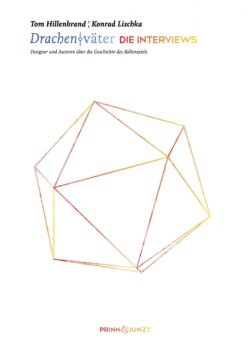Читать книгу Drachenväter: Die Interviews - Konrad Lischka - Страница 49
На сайте Литреса книга снята с продажи.
Can you describe, from your point of view, how the RPG business changed and evolved from the mid seventies onward?
ОглавлениеIn the seventies, it was something that spread from the miniatures wargaming societies into colleges, and then into high schools. It grew faster and larger than the creators could ever imagine, and what had been a hobby business grew into a big business. D&D was the #1 Christmas gift in 1980. It was huge. Throughout the early eighties, the flow of products was slow enough that everyone had all the same stuff. Everyone had „Keep on the Borderlands“. Everyone had „Tomb of Horrors“. By the end of the decade, this was no longer true. Other games had come on the scene and grown their own audience. „Traveler“, „Champions“, GURPS, „Call of Cthulhu“, and a hundred others had appeared. Even among D&D players, the audience splintered into those buying Greyhawk, those interested in Forgotten Realms, and so on.
In the nineties, this trend continued to the point that companies had to churn out products to keep afloat. If in the eighties a small RPG company could sell 10,000 copies of a product, in the nineties they sold 2500 copies of four products. Same sales, but more cost. Fewer customers. RPGs were still popular, but the audience was fragmented into hundreds of tiny pieces. On top of that, the audience that had started in the eighties began to age. They got married, had kids. They didn't have any time to game.
In 2000, with the launch of third edition D&D, gamers came back. Nostalgia was a big part of this. Older gamers taught their kids how to play. Plus, now D&D (and nerdiness in general) was cool. This was the latest big explosion of sales in the RPG industry, as the d20 license enabled other publishers to jump on this bandwagon and also help support the new edition of the game.
Today, we see the audience fracturing once again. The launch of fourth edition D&D seems to have split the D&D audience right in half, with one side going with the new (very different) rules, and the rest staying with third edition or going back to even earlier versions. Other game companies support their own games with their own audiences. With no „Dragon“ magazine, there is no centralized hub of gaming culture. The various splinter groups move farther and farther away from each other.
